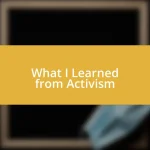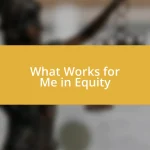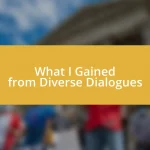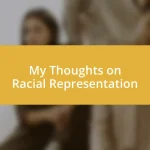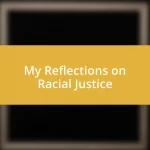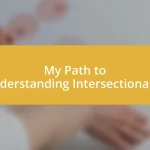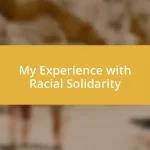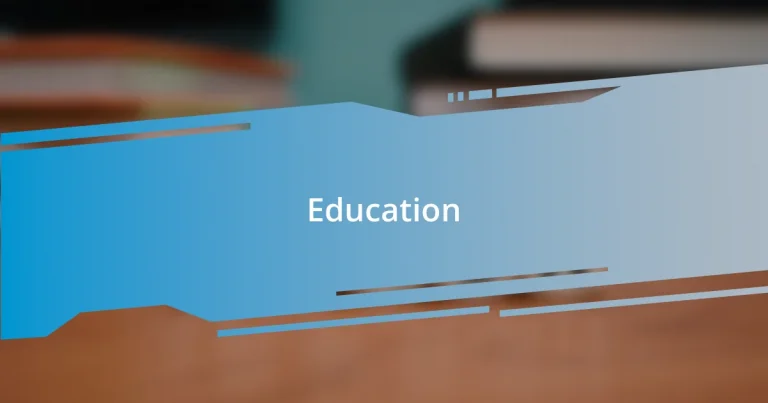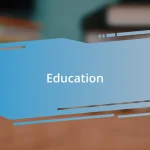Key takeaways:
- Disability rights advocacy empowers individuals through collective action, sharing personal experiences, and understanding specific rights, such as those under the ADA.
- Building personal advocacy skills includes clear communication, active listening, and seeking feedback, fostering confidence in asserting one’s rights.
- Engaging with community organizations and utilizing social media enhances advocacy efforts, allowing for broader connections, shared experiences, and increased visibility for disability rights issues.
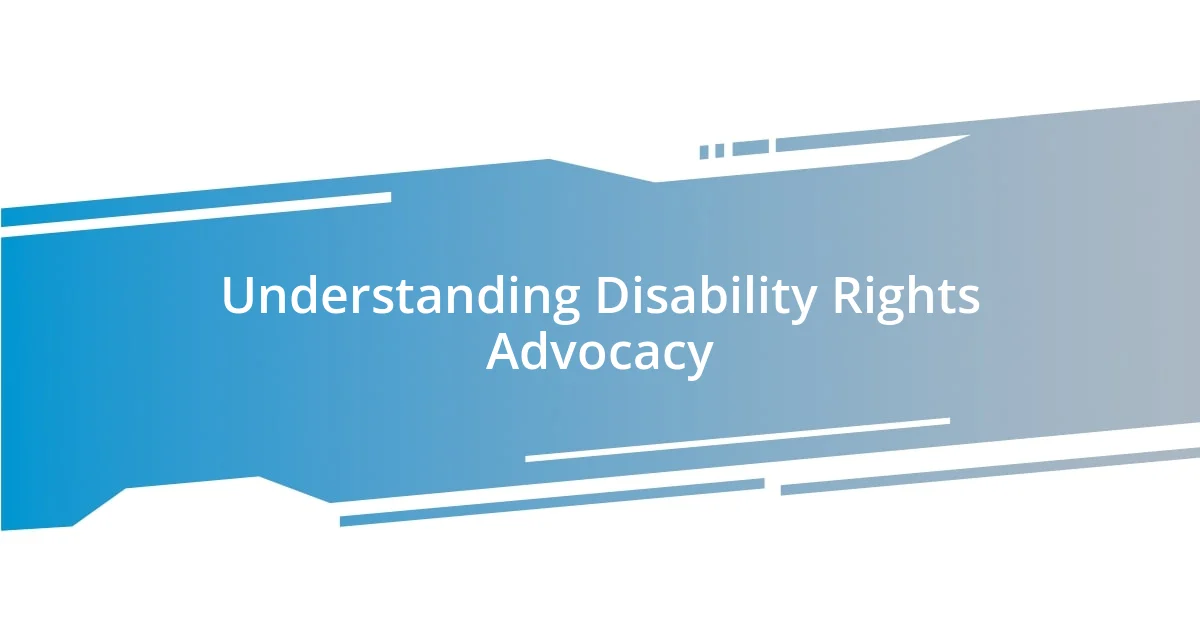
Understanding Disability Rights Advocacy
Disability rights advocacy is all about ensuring that individuals with disabilities have equal access, opportunities, and rights in society. I remember the first time I attended a local advocacy meeting; there was a vibrant energy in the room, fueled by shared goals and passion. It struck me how much power we gain when we come together to voice our needs and experiences.
In my journey, I’ve realized that advocacy isn’t just about policies; it’s deeply personal. Have you ever faced a barrier that seemed insurmountable? I vividly recall a time when a public building lacked proper accessibility, leaving me frustrated and feeling invisible. That moment ignited my drive to push for change, driving home the urgency of ensuring that every voice, including our own, is heard.
Understanding disability rights advocacy also involves recognizing the challenges and triumphs experienced by others. I often find inspiration in the stories of people who persevered against the odds—like a friend of mine who fought tirelessly for accessible transportation options. These stories remind me that advocacy can galvanize communities, creating ripples of change that extend far beyond individual experiences.
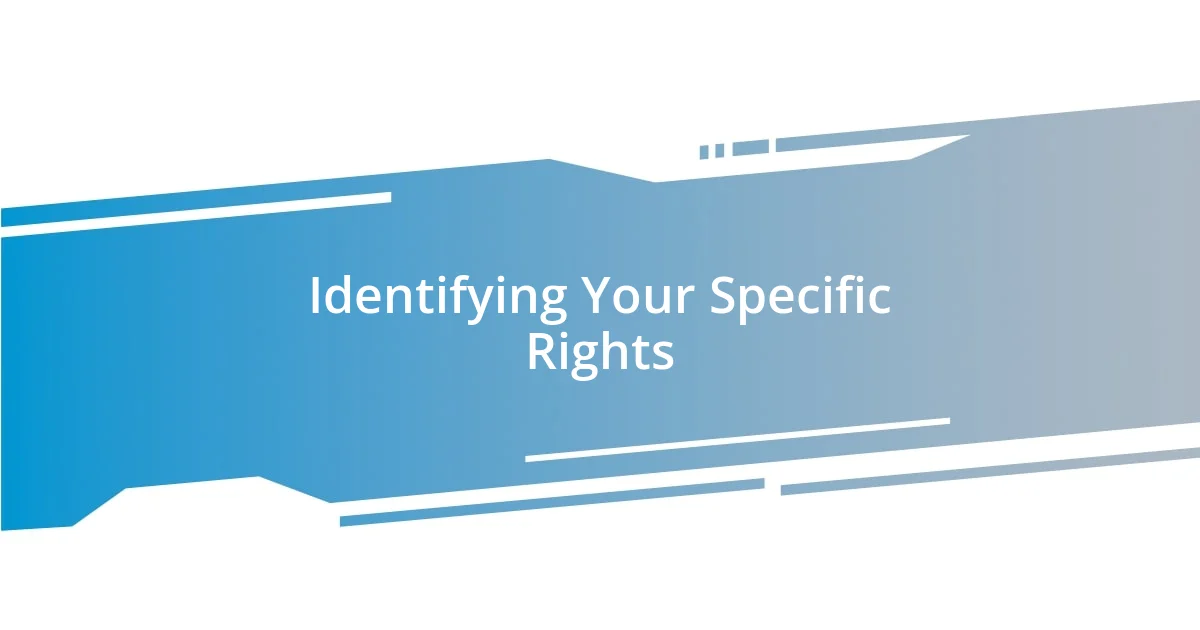
Identifying Your Specific Rights
Identifying your specific rights can feel daunting, especially with the different laws and protections in place. For me, diving into the details of legislation like the Americans with Disabilities Act (ADA) was eye-opening. It’s not just about knowing the law; it’s about understanding how it applies to my life and the rights I can advocate for in my community.
I remember poring over resources, highlighting sections that resonated with me. One particular realization was how housing discrimination can directly impact individuals with disabilities. My friend faced challenges securing a rental due to accessibility needs, but knowing her rights under the Fair Housing Act empowered her to take action. Recognizing these nuances can help you confidently stand up for your rights when confronted with obstacles.
Sometimes, it helps to create a checklist of specific rights relevant to your situation. I did this during a workshop, mapping out everything from accessible transportation to employment protections. This approach clarified my understanding and made it easier to communicate my needs. Are you ready to explore your rights? Trust me, knowing your rights is a crucial first step in advocating effectively.
| Type of Rights | Description |
|---|---|
| Accessibility Rights | Ensure access to public spaces, transportation, and housing |
| Employment Rights | Prevent job discrimination and mandate reasonable accommodations |
| Education Rights | Guarantee equal access to educational programs and resources |
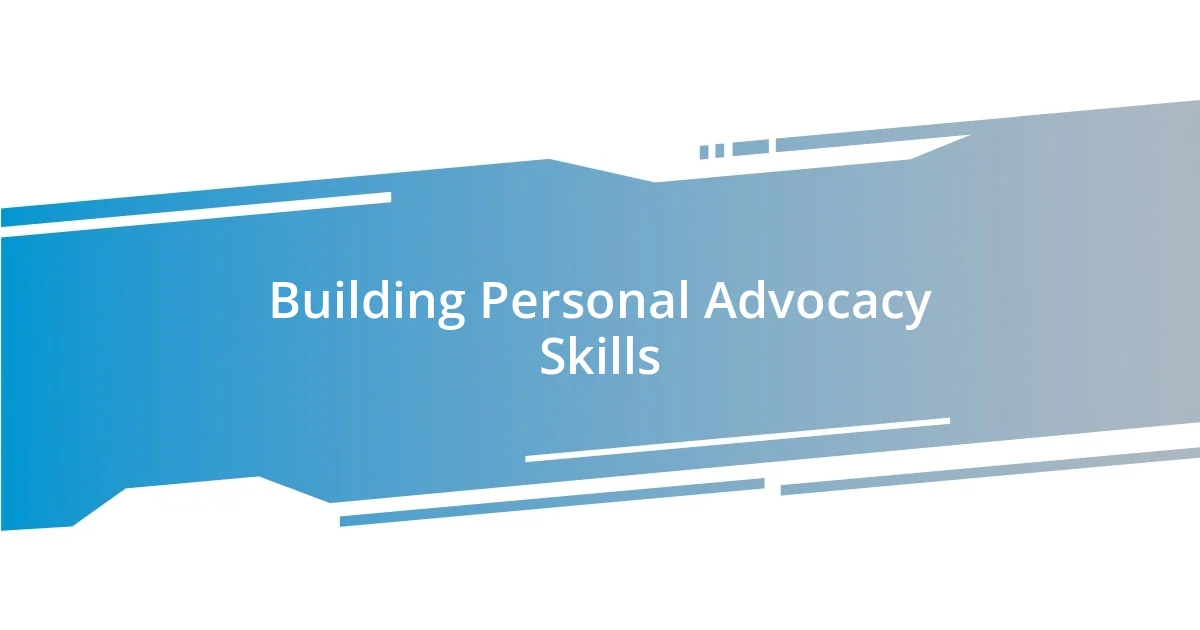
Building Personal Advocacy Skills
Building personal advocacy skills is crucial for anyone looking to make a change. I recall attending a workshop on self-advocacy where I learned about expressing my needs clearly, which was a game-changer. The experience made me realize how essential it is to practice assertiveness. Just like learning to ride a bike, it takes time and persistence.
To hone personal advocacy skills, consider these steps:
- Practice Active Listening: Understand others’ experiences to advocate more effectively.
- Develop Clear Communication: Use straightforward language when stating your needs.
- Role-Play Scenarios: Practice conversations where you need to assert your rights with friends or family.
- Seek Feedback: Ask peers for constructive criticism to refine your approach.
- Stay Informed: Regularly read up on current disability rights issues to stay knowledgeable.
I often find motivation in the small victories. For instance, I volunteered to assist at a community event where accessible formats were prioritized, which helped me explore new ways to communicate effectively with diverse groups. By actively participating, I gained confidence that spills over into other areas of my advocacy work. This journey is about constantly adapting and learning, which ultimately empowers me to advocate for myself and others.
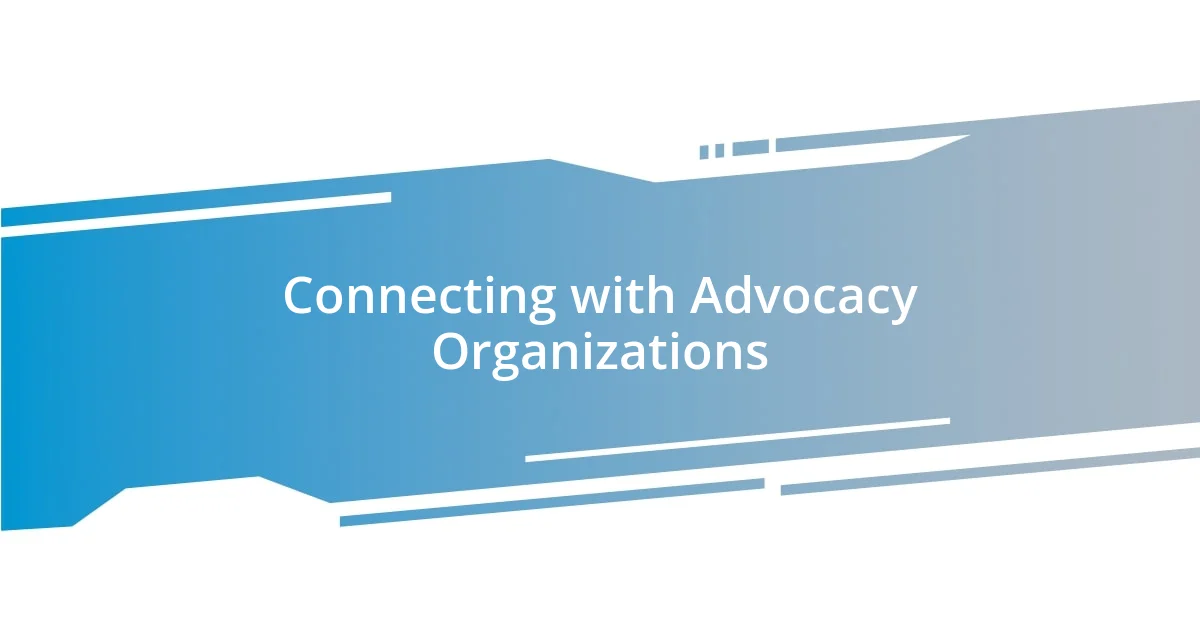
Connecting with Advocacy Organizations
Connecting with advocacy organizations can significantly enhance your understanding and reach in the disability rights arena. When I first linked up with a local advocacy group, I felt an immediate sense of community. It was refreshing to be in a space where my experiences were not only validated but understood. Have you ever felt that rush of connection with people who truly get it?
Through these organizations, I’ve encountered resources that I never knew existed. One time, I attended a meeting where an attorney explained how to navigate the complexities of Social Security benefits. I didn’t just listen; I took notes like my life depended on it. That knowledge transformed my approach to seeking support, allowing me to feel more empowered rather than overwhelmed.
Engaging with these groups also opened doors to advocacy opportunities I hadn’t considered before. For example, I joined a campaign that focused on accessible transportation in my city. Collaborating with others and sharing strategies not only amplified our voices but also deepened my commitment to our mission. What if you could find a group that resonates with your journey? Connecting with the right organizations can truly make a difference.
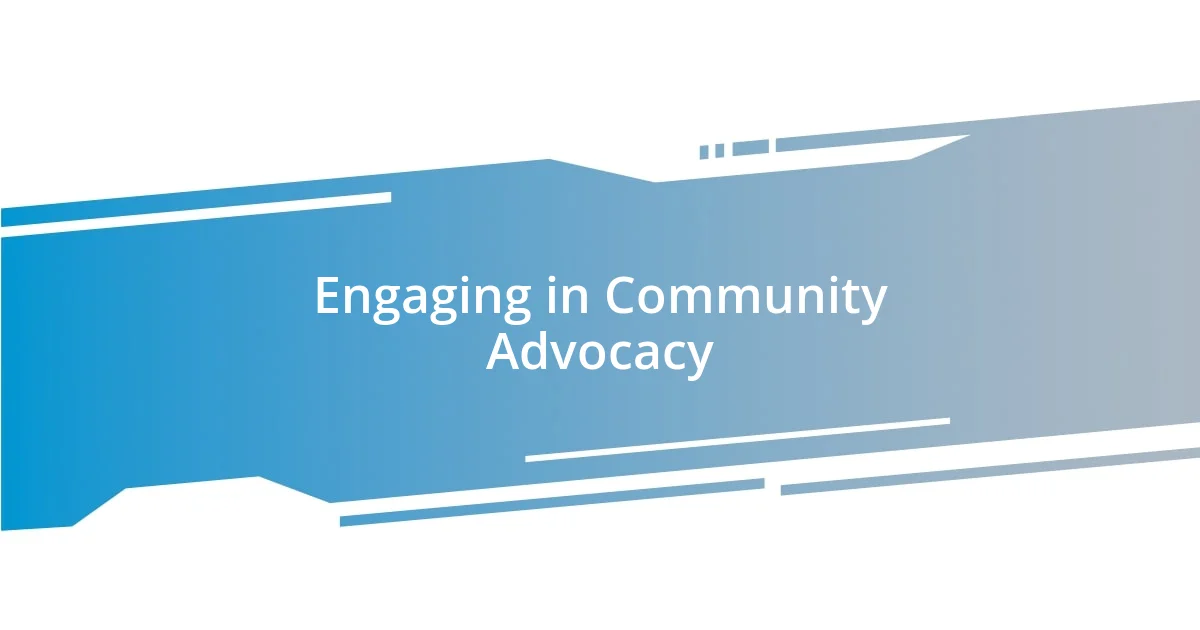
Engaging in Community Advocacy
Engaging in community advocacy has a way of transforming how we perceive our own rights and the rights of others. I remember my first experience at a community forum where individuals from diverse backgrounds shared their stories about navigating the complex world of disability services. Listening to their struggles and triumphs was an eye-opener; it illuminated the power of collective voices. Have you ever sat in a room where everyone’s experiences seemed to resonate with your own? That feeling can motivate you to contribute and fight for change.
I actively seek out local initiatives that focus on disability rights. One memorable project was a collaborative event where we worked together to create resources for accessible voting. The energy was infectious! I found myself brainstorming ideas on how to inform our community about their voting rights, and that experience ignited a fire in me. It’s fascinating how working alongside passionate advocates can spark creativity and a sense of urgency to drive change. How can we harness that energy to expand our reach?
During my advocacy journey, I’ve learned the immense value of shared knowledge. Just recently, I participated in a panel where we discussed the importance of inclusive design in public spaces. I felt a rush of pride when I shared insights about my own experiences with accessibility barriers. It was not just about voicing my own challenges but also standing in solidarity with others who faced similar obstacles. This collective action demonstrates that when we engage in our communities, we amplify our voices and strengthen our resolve to advocate for meaningful change.
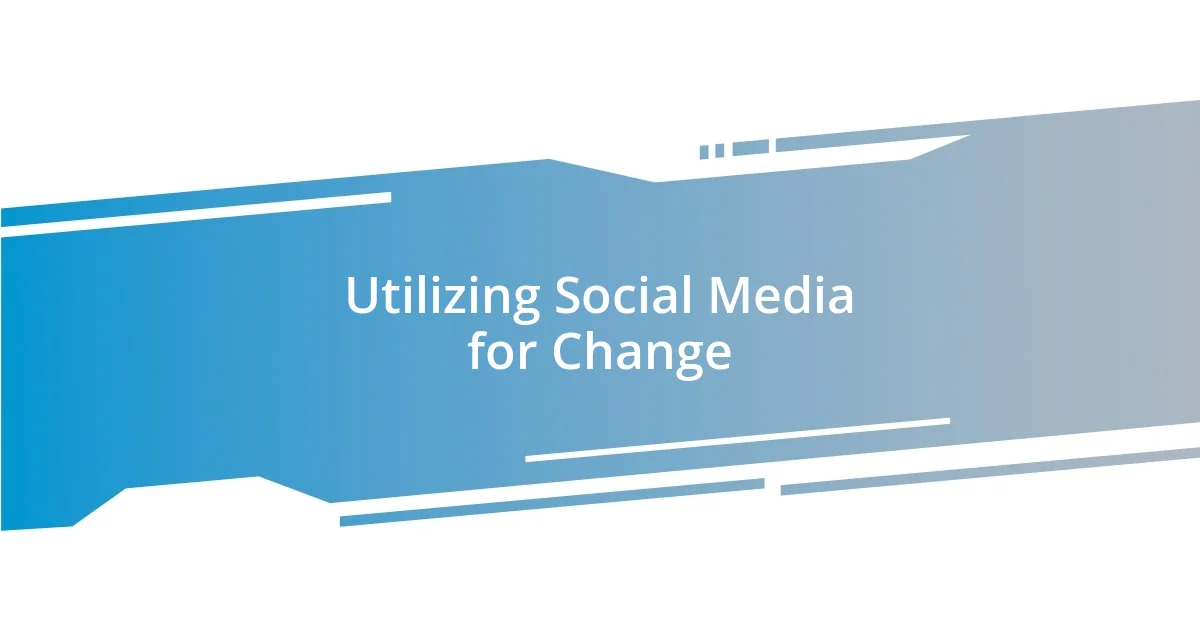
Utilizing Social Media for Change
Utilizing social media for change has become a vital tool in our advocacy toolbox. I had a moment of realization when I posted about my own challenges with accessibility on a popular platform. The flood of responses, from individuals sharing their stories to organizations reaching out for collaboration, was overwhelming. Have you ever experienced that sense of community online, where your feelings resonate with others across the globe? It was a reminder that social media can cultivate solidarity like nothing else.
Creating hashtags around disability rights can foster a sense of urgency and visibility. I remember joining a trending campaign where we used #AccessForAll to draw attention to vital policy changes. Watching the dialogues explode with personal stories and expert advice was incredibly empowering. Each retweet felt like another step toward lifting our collective voices. What if we could harness the power of trending topics to push for accountability and awareness? The potential impact leaves me optimistic.
Engaging with advocacy groups on social media has opened countless doors for me. One memorable experience was when I participated in a Twitter chat focused on mental health and accessibility. I felt a surge of adrenaline as I shared my insights while connecting with experts and fellow advocates. This fast-paced exchange of ideas taught me the importance of being authentic and transparent online. How much of our shared experiences are shaped by the platforms we use? The connection and support we can foster online can create ripples of change in our local communities and beyond.
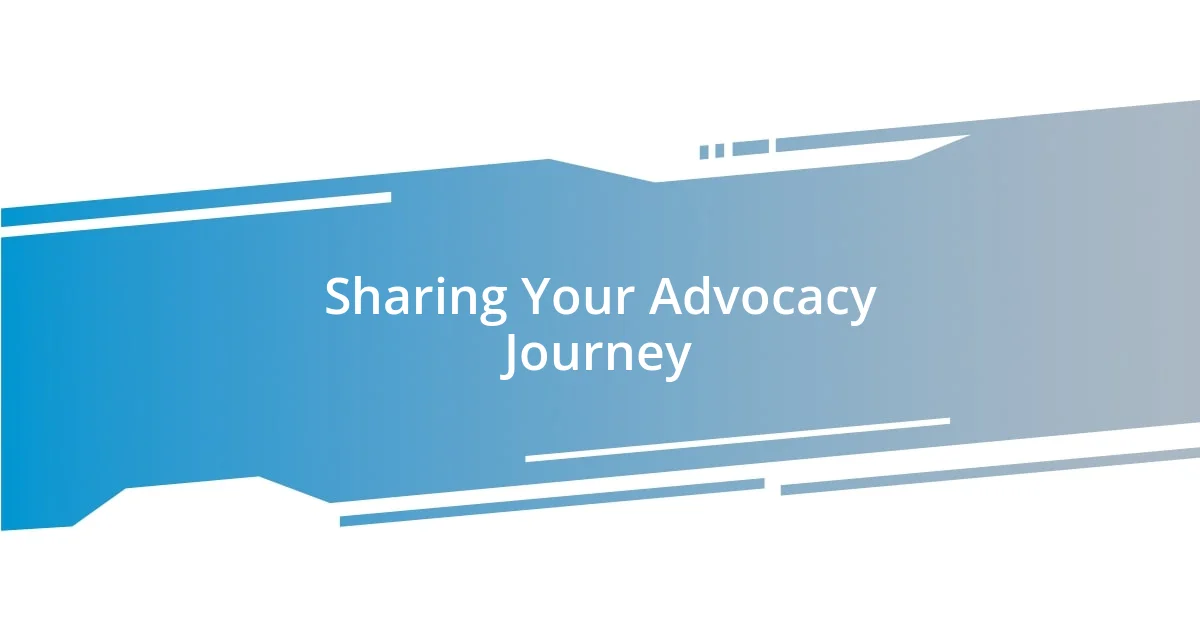
Sharing Your Advocacy Journey
Sharing my advocacy journey has been both a personal and transformative experience. One day, as I was recounting my struggles at a local meeting, I noticed a young woman in the audience nodding along, clearly resonating with my story. That moment struck me deeply. Have you ever shared something so intimate, only to see it reflected back in someone else’s eyes? It reinforced the idea that our narratives matter; they can inspire others to find their own voices.
I often find myself participating in online forums where individuals share their advocacy experiences. Recently, I contributed to a discussion about the challenges of accessing public transportation. I mentioned a particularly frustrating incident where a bus I relied on left without accommodating a few of us needing extra time. Reading how others had faced similar situations felt cathartic. Isn’t it interesting how sharing our stories can validate our feelings and encourage a collective push for change? In those discussions, I felt a sense of solidarity that breathed new life into my advocacy efforts.
Every time I share my journey, I realize that vulnerability can be a powerful catalyst for change. During a recent community presentation, I decided to talk openly about the emotional toll that navigating bureaucratic systems can take on individuals with disabilities. The palpable energy in the room shifted; I could see people leaning in, engaged and eager to understand. It’s moments like these that make me wonder: how can my experiences shape better policies and practices for everyone? The answer, I believe, lies in the raw honesty of our stories and the connections we forge through shared struggles.
